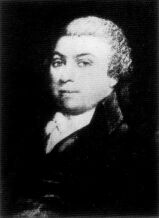Related Research Articles

Samuel Sewall was an American lawyer and congressman. He was born in Boston in the Province of Massachusetts Bay.
The 1814–15 United States House of Representatives elections were held on various dates in various states between April 26, 1814, and August 10, 1815. Each state set its own date for its elections to the House of Representatives before the first session of the 14th United States Congress convened on December 4, 1815. They occurred during President James Madison's second term. Elections were held for all 182 seats, representing 18 states.

The 1812–13 United States House of Representatives elections were held on various dates in various states between August 3, 1812, and April 30, 1813. Each state set its own date for its elections to the House of Representatives before the first session of the 13th United States Congress convened on May 24, 1813. They coincided with James Madison being re-elected president.
William Baylies was an American lawyer and politician who served four non-consecutive terms as a U.S. Representative from Massachusetts in the early to mid-19th century.

Elections to the United States House of Representatives were held in Pennsylvania on October 13, 1812, for the 13th Congress.

Pennsylvania held its elections October 11, 1814.
Massachusetts held its elections November 7, 1814. State law required a majority vote for election, which was not met in two districts, leading to a second election January 6, 1815.

Tennessee held its elections August 3–4, 1815.

A special election was held in Pennsylvania's 3rd congressional district on October 11, 1814 to fill a vacancy caused by the resignation of James Whitehill (DR) on September 1, 1814. This was the second resignation from the 3rd district in the 13th congress, the previous resignation having been in the previous year.

Kentucky held its elections August 3, 1814.

A special election was held in New Jersey's at-large congressional district October 10–11, 1814 to fill a vacancy left by the death of Jacob Hufty (F) on May 20, 1814.
A special election was held in Massachusetts's 4th congressional district on May 23, 1814, to fill a vacancy left by the resignation of William M. Richardson (DR) on April 18, 1814.

The United States state of Virginia held elections in April 1815.
Although elected in the 1814–1815 United States House of Representatives elections in Massachusetts, Daniel A. White (Federalist) of the 3rd district was offered, and accepted, the position of probate judge in Essex County before taking his seat in Congress.

The 1812 Massachusetts gubernatorial election was held on April 6, 1812.

The 1811 Massachusetts gubernatorial election was held on April 1, 1811.

The 1809 Massachusetts gubernatorial election was held on April 3, 1809.

The 1808 Massachusetts gubernatorial election was held on April 4, 1808.

The 1807 Massachusetts gubernatorial election was held on April 6, 1807.